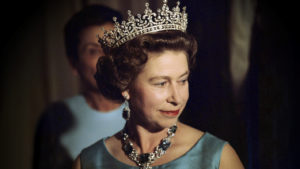Harry and Meghan divide opinion very much along the lines of whether one believes we have obligations beyond our control. I still remember a Christmas family row, me a stroppy teenager, that concluded with me insisting: “I didn’t ask to be born into this family.” No one ever does, of course. Which is why the putative obligations one has to one’s parents — “honour thy father and mother” in old money — cut against the grain of contemporary liberal choice-led values.
The history of how this idea of individual choice came to dominate our moral landscape is complex and interesting. What began as a worthy cry of individual freedom against exploitative elites — the state, the medieval church and so on — greatly exceeded its intended power, eventually becoming a weapon that could bend reality around the will of individual choice. These days, for example, I can be a woman simply if I choose to be one, irrespective of any biological givenness. Philosophically, this means there are no givens that human will cannot and should not be able to overcome. Truth requires a possessive pronoun, making it submissive to individual will: my truth. All that matters is the choosing. There is only one core moral situation and that is when I point to something and say: “I want it”. The paradigmatic setting for moral reflection has shifted from kneeling in the church pew to standing in the shopping aisle.
Capitalism inevitably plays an important part in this story. The soft Left critique is that capitalism is poor at redistribution and poor at cleaning up after itself — that it doesn’t price in its effects on the environment. On the plus side, it has lifted billions out of poverty and has liberated hitherto oppressed individuals from the restrictions of traditional moral values — the power of the “pink pound”, for instance. In this way, capitalism is a kind of solvent against the weight of tradition: the dollars in my pocket free me to be whoever I want to be, whatever I want to be. Dalit billionaire Rajesh Saraiya is no longer untouchable. How can we not cheer such liberation? My wallet says that I don’t have to abide by your values. For “choice first” liberals, this is all to be counted on the positive side of the register.
We could call this the “Montecito perspective”, but Marx explained it best: “All fixed, fast-frozen relations, with their train of ancient and venerable prejudices and opinions, are swept away, all new-formed ones become antiquated before they can ossify. All that is solid melts into air, all that is holy is profaned.” The Netflix Queen, luxuriating in her ghastly Californian mansion, is a surprising example of precisely what Marx described — her exaggerated bow to the monarch making a mockery of the respect that such a gesture is designed to articulate.
This is why the “Montecito perspective” contrasts so directly with the “Buckingham Palace perspective”, which is what makes the whole Harry/William drama so much more than a mimetic rivalry between siblings. They are archetypes of two fundamental and bitter political adversaries: very roughly, tradition and the ethics of the market, old world power and new world power, England and America. People will keep on making programmes about Harry and Meghan not because they are intrinsically worth watching, nor because they provide us with any new information about their perfectly ordinary romance, but rather because they reference a very primitive kind of disagreement about the nature of moral reality. Harry and Meghan are compelling in their own way because they are absolute true believers in the kind of moral vision they propound. In direct contrast, many believe that what they think of as being good is the very thing we now need saving from: an ethics indistinguishable from narcissism. The crack between us reaches down to the very bottom.
From the Palace perspective, we are born into a network of relations to which we are obligated from before we take breath. William would use words like “duty” and “service”, a crucial aspect of which is the belief that my life is not all-about-me. It’s not about my will or my having chosen something. Not even about my own personal happiness. I live in the service of something greater than myself. As today’s episodes reveal, while William was somewhere up the M1 opening yet another Community Centre or Homeless Project, Harry was in the departure lounge, giddily breathing into his mobile phone: “We are on the freedom flight.” Little wonder so many of us saw his abdication of responsibility as a betrayal of duty, to both his family and to his country — which, given the nature of the obligations he was born into, amount to the same thing.
Imagining a happy-ever-after Disneyfied version of royalty, Meghan can be forgiven for not having fully appreciated all of this. Monarchy is not glamour and power; it is bonded servitude — and servitude, as the Queen herself well knew, inspired by a king who divested himself of power to come among us as a baby, one who “emptied himself, taking the form of a servant” (Philippians 2). Harry had the perfect role model to appreciate all this in his grandmother. Unlike his wife, he should have known better. Was that shame on his face as he watched his fairy princess effect an apparently hilarious parody of the bow? If not, it should have been.
“No man can have a right to impose an unchosen obligation on another man,” wrote that patron saint of neoliberalism, Ayn Rand, in The Virtue of Selfishness. This amounts to much the same thing as: “I didn’t ask to be born into this family.” But we all come from somewhere, rooted in a place layered by generations of expectation. And the moral call of such expectations cannot be escaped from simply by relocating to California. There is no psychological tabula rasa to be found, even in the land of reinvention. You take your story with you, and especially so if you are a member of the Royal Family. Harry has not freed himself; he has chosen a very empty form of exile. He has sold his birthright to Netflix, and he has sold it far too cheap. All that Hollywood adulation and California sunshine will not be able to quell the emptiness within.
***
Order your copy of UnHerd’s first print edition here.
Disclaimer
Some of the posts we share are controversial and we do not necessarily agree with them in the whole extend. Sometimes we agree with the content or part of it but we do not agree with the narration or language. Nevertheless we find them somehow interesting, valuable and/or informative or we share them, because we strongly believe in freedom of speech, free press and journalism. We strongly encourage you to have a critical approach to all the content, do your own research and analysis to build your own opinion.
We would be glad to have your feedback.
Source: UnHerd Read the original article here: https://unherd.com/



